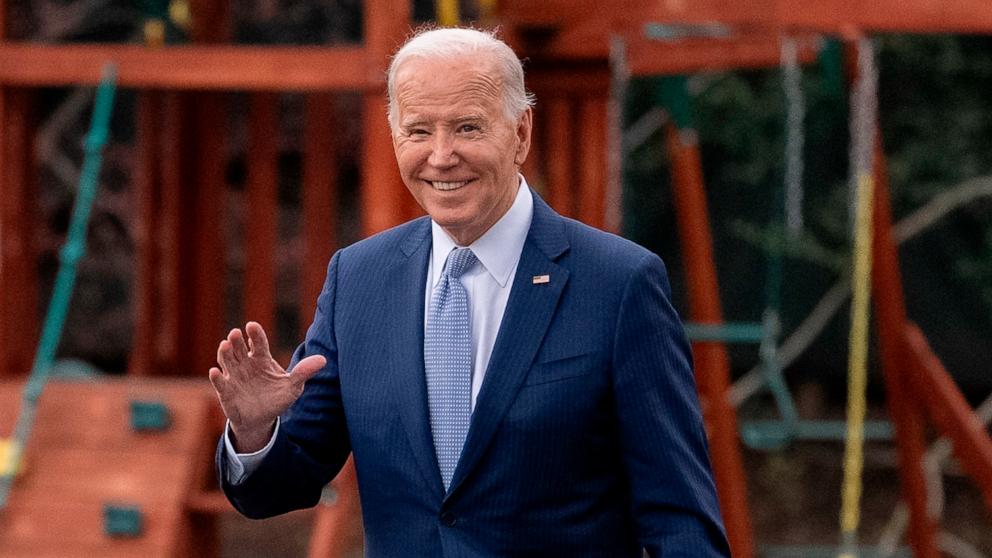The White House announced on Saturday that President Joe Biden signed the funding bill, averting a partial government shutdown.
“This agreement is a compromise and means both sides got everything they wanted,” Biden said in a statement. “But it rejects extreme cuts from House Republicans, expands access to child care, invests in cancer research, funds mental health and substance use care, and strengthens U.S. leadership abroad.” and provide resources to secure our borders, which my administration has successfully sought to include.”
Biden renewed his call on Congress to pass a national security supplement that would provide U.S. aid to Israel, Ukraine and Taiwan, as well as funding for border security and border policy reform.
“Congress' work is not done yet,” Biden said, later adding, “It's time to get this done.”
After a day of procedural shenanigans, the Senate passed the government funding bill early Saturday morning, working an 11-hour agreement to amend the bill to allow it to pass quickly.
The $1.2 trillion government funding bill sent to Biden's desk comes after a year of haggling, a six-month stopgap and bitter partisan clashes over funding and policy in a late-night drama on Capitol Hill. It was the final stage of a turbulent process characterized by
House Minority Leader Schumer announced the agreement on the floor early Saturday morning.
“It's been a very long and difficult day, but we've just reached an agreement to complete the job of funding the government. It's good for the country that we've reached this bipartisan agreement. It's not going to be easy. We didn't have that, but our persistence paid off tonight.'' That's it,'' Schumer said. “It's good for the American people that we reached an agreement tonight to fund the government.”
Shortly after midnight, the White House announced that the Office of Management and Budget had halted preparations for the shutdown, saying it had “high confidence” that Congress would “soon pass” funding legislation to keep the government running.
After the Senate passed the bill, the White House said, “Obligations to federal funds accrue and are tracked daily, so government agencies may not be shut down and may continue normal operations.”
The bill passed the House by a vote of 286-134 early Friday afternoon, despite opposition from far-right members of the Republican caucus. More Democrats than Republicans supported the bill, as more than 100 Republicans voted against it.
The $1.2 trillion package is considered a major bipartisan effort in a deeply divided House of Representatives, covering defense, financial services, homeland security, labor and health, human services and education, the Legislature, national and foreign It would provide funding for six bills, including activities in the United States.
If the bill passes both houses of Congress, the government would be funded through the end of the fiscal year on September 30th. It would also at least end the continuous cycle of resolutions that Congress has nearly shut down the government. Partially 5 times from October.
The government funding measure was introduced in the House of Commons under a suspension of rules and required a two-thirds majority to pass. This means once again that House Speaker Mike Johnson will have to rely on Democrats to get the bill across the finish line, a measure that mired his predecessor, Kevin McCarthy, and last year. led to his ouster from the chairmanship.
Minority Leader Hakeem Jeffries of New York took to the floor during the hour-long debate and urged lawmakers to vote yes.
“This is a good outcome for the American people in terms of standing up for health, safety, education, national security and, of course, economic well-being above all else,” Jeffries said.


